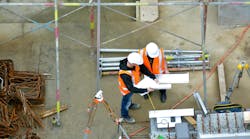Developed as a collaborative effort between EPRI, the New York Power Authority (NYPA), and Iris Power Engineering, HydroTrac, an on-line partial discharge (PD) monitoring system for detecting the onset of equipment failure problems in hydrogenerators, was recently recognized as one of the 100 most technologically significant new products of the year by R&D Magazine. According to EPRI, HydroTrac provides critical data to plant operators performing scheduled preventive maintenance based on equipment conditions and offers a less expensive and labor-intensive approach to PD testing than traditional portable instrumentation by constantly tracing PD activity and identifying areas where typical machine failures can occur.
Most hydrogenerator outages stem from stator winding insulation failure due to age, mechanical malfunction, or stress. The traditional approach to checking hydrogenerator equipment condition is to use portable PDA instrumentation. PDA instruments connect to sensors embedded in the stator winding, and then operators collect data to help assess machine insulation. However, to get accurate PD trend data, you must take many measurements at various times under similar operating conditions—a labor-intensive and expensive process. HydroTrac provides continuous, real-time information on the condition of the generator to help avoid costly in-service machine failures and allow plant personnel to plan corrective action.
"As a major hydroelectric producer, the New York Power Authority is pleased to be at the forefront in developing and demonstrating this innovative technology for plant monitoring," said Shalom Zelingher, NYPA's director of research and technology development. "Our plans are to deploy the HydroTrac at our major hydro facilities, including the St. Lawrence-Franklin D. Roosevelt and Niagara Power Projects. This technology will help facilitate the planning and implementation of our maintenance activities."
EPRI is seeking members to help demonstrate HydroTrac and share their experiences. This project is open to domestic and international organizations interested in the development of a cost-effective machine-condition monitoring system for hydroelectric units. For information, contact Jan Stein at (650) 855-2390, e-mail [email protected], or visit www.epri.com/destinations/.


